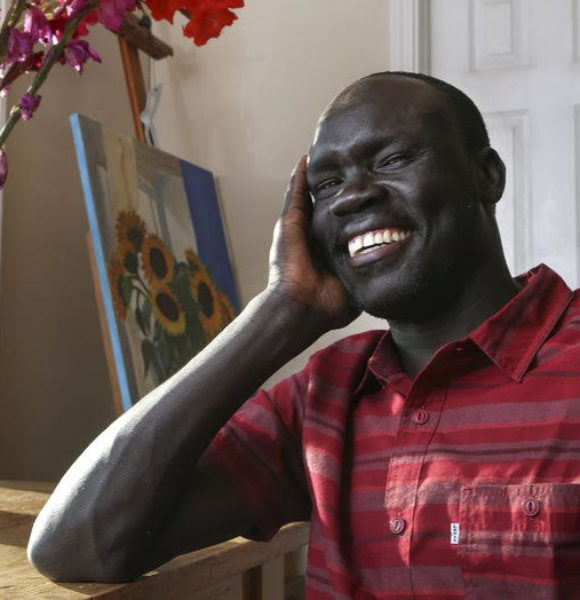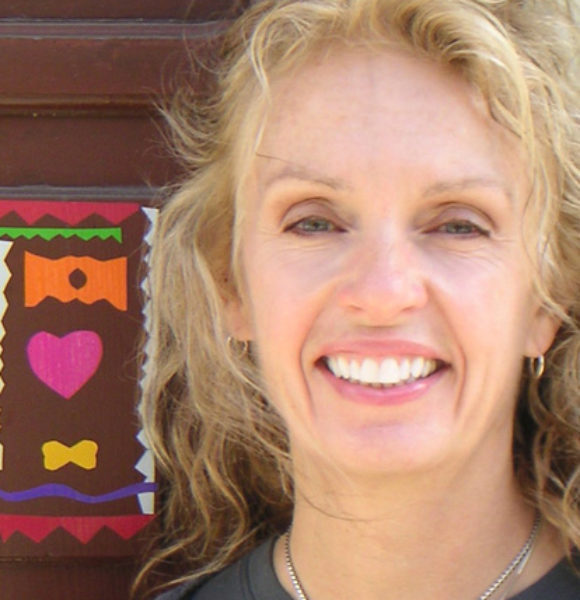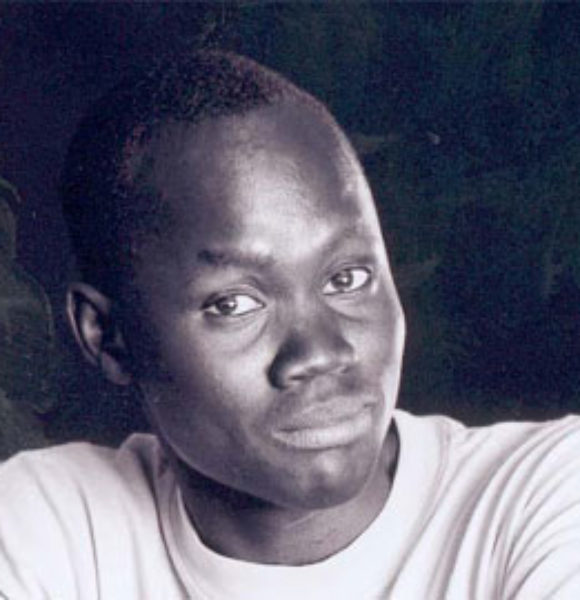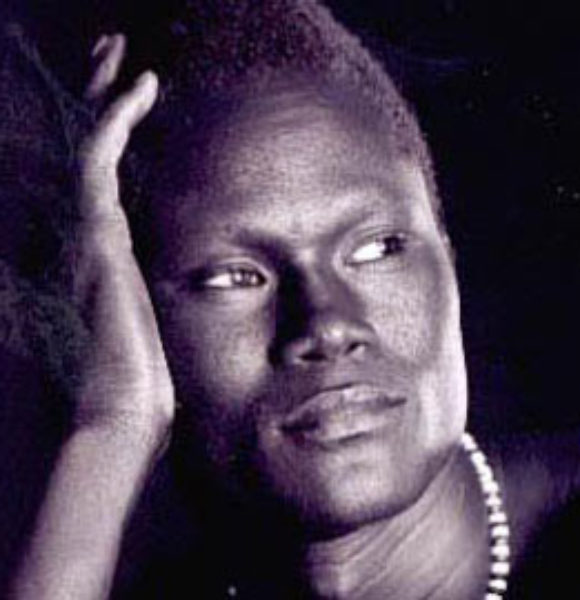
Alephonsion Deng
Growing up in my country, Sudan, with a large family, I always felt protected. But when my village was attacked when I was seven and I fled across Sudan, I saw people dying every day and the frightening feeling was always with me that I might be the next person to die. As a child I believe that I had a different perspective than adults who experienced the war. Adults understood it politically. But to me the war didn’t seem to have boundaries or purpose, it just created more anger, hatred, vengeance, tension and bad feelings between people.
If you survive a holocaust, it’s hard to tell your story, to do dig out the really tainted parts of your life and speak openly about them. Writing this book has helped me emotionally, mentally and physically to reshape my dark side, the side of me that was distorted by war. But I think the best reason to put down these stories is to let people know what happened and what is still happening in Sudan. To show people how it was for the Lost Boys and Girls who went through that holocaust as small children and to let the ones who died be honored through our memories.
Judy Bernstein
Stepping down after twenty years in the computer business, Judy now spends her time as a mother, writer, and as an Advisory Committee Member of the San Diego International Rescue Committee.
In her capacity as an IRC mentor in 2001, she met co-authors, Alephonsion Deng, Benson Deng, and Benjamin Ajak. Awed and deeply touched by their tragic childhoods, epic journey, and heroic survival, when they wrote accounts of their experiences she turned her attention from her just completed historical novel to helping them develop their poignant stories. Knowing the process would improve English skills and hoping it would be good for their spirits, she soon saw the potential for a dream that might also help them to get an education and a foothold in their newly adopted country. That dream began its journey toward reality when Joni Evans, Vice President of William Morris Agency, agreed to represent them. Clive Priddle at Public Affairs recognized the possibility for a book, nurtured it along and took it to fruition. They Poured Fire on Us from the Sky: The True Story of Three Lost Boys of Sudan was published in May 2005.
Judy now spends her time speaking publicly with her co-authors to community groups such as Rotary Clubs and Amnesty International, temples, churches, and schools. When not speaking, she is writing articles, working on another collaboration with her co-authors, continuing her volunteer activities and enjoying time with her husband, Paul, and son, Cliff.
Photo taken by Paul Bernstein, and distributed under a Creative Commons Attribution 4.0 International License

Benson Deng
I learned English by writing the alphabet with a stick in the sand in Ethiopia. Five years later when I reached safety in Kenya I began my education again, but was soon struck with a serious illness, River Blindness. For five years that disease that made it impossible for me to sit and attend class so I taught myself English by lying on my stomach in my hut and copying the essentials of grammar and vocabulary into a composition book.
Since my arrival in America in August 2001, I’ve worked at Ralphs Grocery Store and have run a computer and digital photography system at Waste Management in El Cajon.
When I arrived in America my brother and cousin and I began writing about our experiences. Our literary agent, Joni Evans, VP of William Morris, sold our book to Public Affairs. It is entitled “They Poured Fire on Us from the Sky: The True Story of Three Lost Boys of Sudan” and was released June 13th, 2005. We hope that the book will allow us to further our education and help our family back home who are still suffering.
In 2014 I returned to South Sudan and drilled wells with the non-profit Water for South Sudan.


Benjamin Ajak
Benjamin Ajak was born in 1982 in a village in Southern Sudan. His parents were pastoralists and subsistence farmers who raised cattle until a civil war broke out between Northern and Southern Sudan. In 1987 Benjamin’s village was attacked. To escape death or induction into the Muslim army, at the age of five years, Benjamin fled alone into the night. Several days later he found his cousins, Benson and Lino, seven years old, and they joined the exodus that became twenty thousand boys fleeing a thousand miles across Africa’s largest country. Facing lions, crocodiles and starvation, only a half survived, made it into Ethiopia, and became known to the world as The Lost Boys.
Another long walk through deserts and mountains led him to Kakuma Refugee Camp, a barren wasteland in northern Kenya, but the safest place he’d been in years. The education in Kakuma was excellent. Benjamin studied English, math, science and history, but food was scarce, about one half cup of ground corn a day and the supply was often exhausted or stolen before the next ration. Benjamin remained in Kakuma from 1992 until 2001.
On September 11, 2001 Benjamin’s first glimpse of America outside his plane window was the World Trade Towers on fire. His plane was diverted to Canada and he arrived two weeks later in San Diego. Since then Benjamin has explored many opportunities in America, from a wrapper at the Hillcrest Ralphs Grocery Store to a part in the Russell Crowe/Peter Weir movie, “Master and Commander.” Holding a Class A license, from behind the wheel of an 18 wheeler, Benjamin has seen all 48 states.